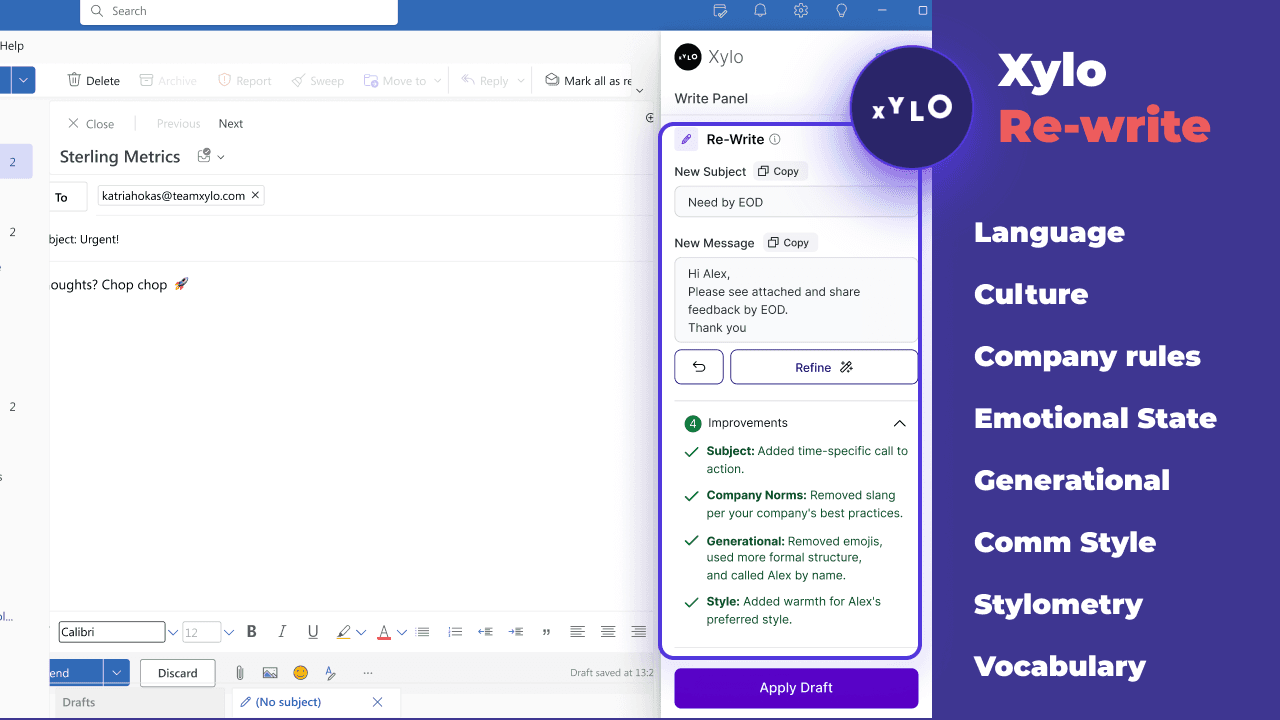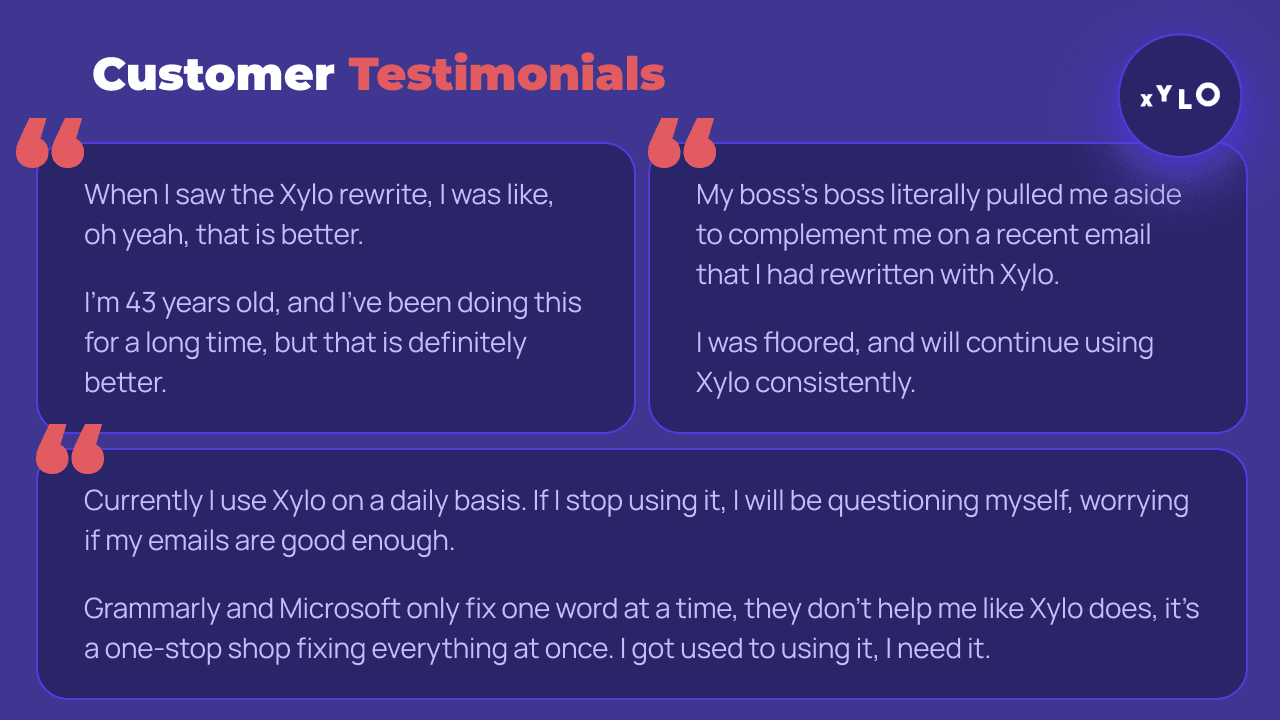What Does Leading in the Communications and Automotive Industries Mean?
November 1, 2024
What Does Leading in the Communications and Automotive Industries Mean?
Xylo for Business
What Does Leading in the Communications and Automotive Industries Mean?
In today’s swiftly changing landscape, leading in the communications and automotive industries refers to more than just innovation; it involves the cultivation of agility, the utilization of cutting-edge technologies, and the adoption of a strategic communication approach. The convergence of artificial intelligence (AI) and advanced communication tools has revolutionized these sectors, enabling companies to operate efficiently, enhance customer satisfaction, and, ultimately, outpace competitors.
To truly understand what it takes to lead, we need to dive into how technology, particularly AI, is reshaping both internal and external communication strategies in the automotive sector. This article explores key trends, best practices, and how companies can use AI tools like Xylo AI to enhance communication, drive productivity, and stay ahead in an increasingly competitive market.
In this article:
The Changing Landscape of the Automotive Industry
Key Factors Influencing the Automotive Industry
Why Effective Communication is Essential for Leading in Automotive
Leveraging AI to Enhance Communication in Automotive
Implementing a Communication Strategy in Automotive: Best Practices
Real-World Examples of Leading in Automotive Communication
The Future of Communication in the Automotive Industry
Leading with Communication and Innovation
The Changing Landscape of the Automotive Industry
The automotive industry is undergoing significant transformations driven by advances in AI, shifts in consumer behavior, and evolving market dynamics. These changes are forcing automotive companies to not only adapt quickly but also lead by innovating their communication strategies. In this context, communication isn’t limited to consumer interactions; it also encompasses internal communication within automotive companies, which has become a cornerstone for success in this fast-paced sector.
Key Factors Influencing the Automotive Industry
The Rise of Connected Vehicles:
AI is at the heart of connected vehicle technology, enabling vehicles to communicate with each other, infrastructure, and various systems. This connectivity requires seamless internal communication among teams working on these technologies and external communication with stakeholders, regulatory bodies, and customers.
Digital Transformation:
Automotive companies are embracing digital transformation to improve efficiency, product development, and customer experience. Communication tools, especially those powered by AI, help streamline these efforts by allowing quick dissemination of information across departments and regions.
Customer-Centric Approach:
Today’s consumers expect personalized experiences. AI in the automotive industry enables real-time data analysis, helping companies understand customer preferences and deliver targeted communication. Effective communication is essential to ensuring that these insights are used optimally across departments, from R&D to customer service.
Sustainability Initiatives:
The shift towards electric and sustainable vehicles has added another layer of complexity. Effective communication is vital for aligning all stakeholders, including suppliers, manufacturing teams, and consumers, on these initiatives.
Why Effective Communication is Essential for Leading in Automotive
The success of any automotive company is increasingly tied to its ability to communicate effectively both internally and externally. According to research from Staffbase, effective internal communication can improve employee engagement and productivity, which ultimately translates to a better end product and customer experience. Here’s how communication impacts leadership in the automotive industry:
Enhances Team Collaboration:
When communication is streamlined, teams can collaborate more effectively on complex projects, from developing new models to launching software updates for existing vehicles.
Aligns Goals Across Departments:
As automotive companies increasingly embrace AI and digital technology, it’s crucial that all teams—from marketing to engineering—are aligned in their goals. Effective communication ensures everyone is working towards the same objectives.
Builds Trust with Consumers and Stakeholders:
In an era where transparency is valued, communicating openly about challenges, solutions, and innovations builds trust with customers and stakeholders.
Drives Innovation:
Communication enables knowledge sharing, which is essential for innovation. When employees share their insights and learnings, it fosters an environment where groundbreaking ideas can flourish.

Leveraging AI to Enhance Communication in Automotive
AI has proven to be a game-changer for the automotive industry. Whether it’s streamlining production processes or creating personalized marketing strategies, AI plays a crucial role in helping automotive companies operate efficiently. But one of its most powerful applications is in enhancing communication, both within companies and with customers.
1. AI-Powered Conversation Intelligence
Conversation intelligence is transforming communication within automotive companies, particularly in customer-facing roles. By analyzing conversations, AI can provide insights into customer needs, complaints, and preferences. Tools like Xylo AI enable automotive teams to identify communication gaps, adjust their approach, and provide consistent, data-driven responses to consumers.
2. AI in Internal Communications
For automotive companies, internal communication is essential to drive productivity, innovation, and employee satisfaction. AI-powered tools such as Xylo AI assist in organizing, automating, and analyzing internal communication processes, making it easier for leaders to manage information flow across departments and regions.
For example, Xylo AI’s AI email writer can streamline internal communications by automatically drafting emails, summarizing lengthy discussions, and ensuring that messaging is consistent. This helps teams stay on the same page, especially when working on complex projects or dealing with multiple stakeholders.
3. Predictive Analytics for Customer Communication
Predictive analytics allows automotive companies to anticipate customer needs and tailor communication accordingly. By analyzing historical data, AI can help companies identify trends, forecast customer behavior, and adjust marketing messages. This not only improves the customer experience but also ensures that communication is timely and relevant.

Download Xylo AI on your Outlook
Implementing a Communication Strategy in Automotive: Best Practices
To lead in the automotive industry, companies need to adopt a strategic approach to communication. Here are some best practices to consider:
1. Embrace a Digital-First Mindset
Digital tools are essential for effective communication in the modern automotive industry. Leaders should invest in digital communication platforms that enable employees to collaborate seamlessly and share knowledge across different departments.
2. Use AI to Enhance Personalization
With AI, companies can tailor their messaging to individual customers based on data insights. For instance, Xylo AI email assistant can send personalized emails to customers, addressing their specific needs and preferences. This level of personalization improves customer satisfaction and builds loyalty.
3. Prioritize Emotional Intelligence in Leadership
While AI is a powerful tool, leaders in the automotive industry must also prioritize emotional intelligence (EQ) to foster a positive, collaborative environment. According to CBT News, emotionally intelligent leaders can better navigate complex interpersonal dynamics, improve employee morale, and build a culture of open communication. Xylo AI integrates social psychology and emotional intelligence (EQ) to transform digital communication. By adapting to the nuances of human interaction, it crafts messages that resonate with authenticity and emotional insight, fostering trust and impactful connections.
4. Encourage Transparency and Open Communication
Leading automotive companies value transparency. They openly share their challenges, successes, and future goals with employees and customers. This transparency builds trust and fosters loyalty, which is essential for maintaining a competitive edge in today’s market.
Real-World Examples of Leading in Automotive Communication
Case Study 1: Tesla’s Transparent Approach to Communication Tesla has made headlines not only for its electric vehicles but also for its transparent approach to communication. Elon Musk frequently communicates directly with customers and investors via social media, openly sharing the company’s plans, successes, and challenges. This transparency has earned Tesla a loyal customer base and has positioned it as a leader in the automotive industry.
Case Study 2: Ford’s Internal Communication Overhaul Ford recently revamped its internal communication strategy to foster better alignment across departments. By implementing an internal communication app, Ford has improved collaboration between teams, ensuring that everyone is informed about project progress and company goals. This change has enabled Ford to be more agile and responsive to market demands.
The Future of Communication in the Automotive Industry
As AI technology continues to evolve, communication in the automotive industry will become even more data-driven, personalized, and efficient. Here are some trends to watch:
Increased Use of AI in Customer Support:
AI-powered chatbots and virtual assistants will continue to improve customer support, providing quick, accurate answers to customer inquiries.
AI-Driven Communication:
AI tools like Xylo AI will be increasingly used to draft emails, reports, and marketing materials, enabling teams to communicate faster and more effectively.
Focus on Data Security:
With the rise of connected vehicles, data security will be a top priority. Automotive companies will need to communicate transparently about how they protect customer data and comply with regulations.

Leading with Communication and Innovation
To truly lead in the communications and automotive industries, companies must adopt a comprehensive communication strategy that integrates AI and prioritizes transparency, agility, and customer-centricity. Leveraging tools like Xylo AI can streamline both internal and external communication, enabling automotive companies to stay competitive and meet the ever-evolving needs of consumers. As AI continues to transform the industry, those who embrace these innovations in communication will be the ones setting the pace and defining the future.
Incorporating these strategies not only enhances productivity and efficiency but also builds a solid foundation for long-term success. For automotive companies aiming to lead in this AI era and beyond, mastering communication—powered by the latest AI technology—is not just an option; it’s a necessity.
Related articles



